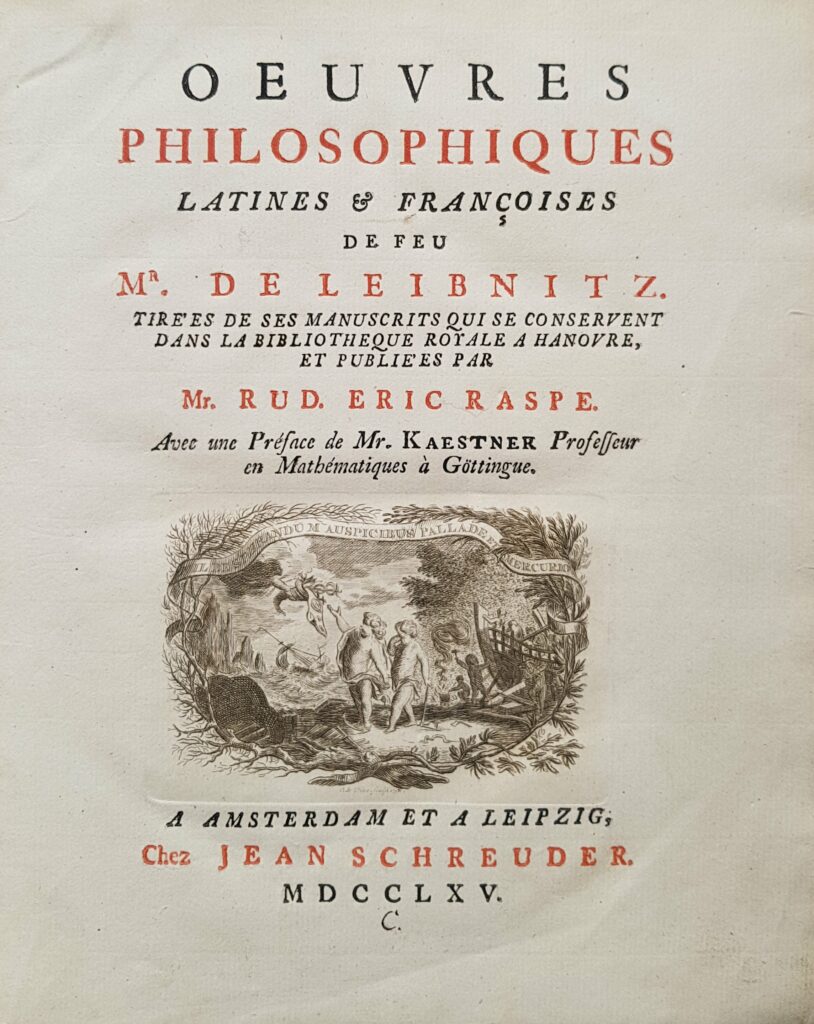First edition. Ravier 472. Nouveaux essais sur l’entendement humain takes up almost all (520 pages) of this volume. Written in 1703-05 in reaction to John Locke’s Essay concerning Humane Understanding, Leibniz delayed publication when he heard of Locke’s death because he thought it unfair publicly to attack someone who could no longer defend himself. Kant read the text closely four years after publication: ‘the year ’69 gave me great light’ (Reflexionen 5037, 18:68). The title is something of a misnomer: the essais are couched in the form of a dialogue between Locke’s spokesman Philalethes, who quotes from Coste’s translation of the Essay, and Theophiles who replies for Leibniz.
Modern commentators consider this text a high-water mark of European philosophy: Catherine Wilson calls it ‘undoubtedly Leibniz’s best composition: the richest, the most tightly argued, the most fertile’; and Peter Remnant and Jonathan Bennett say in the introduction to their Cambridge edition ‘any attentive reader of the New Essays must receive a dominant impression of being in the presence of a powerful, restless, superbly sharp intelligence’.


